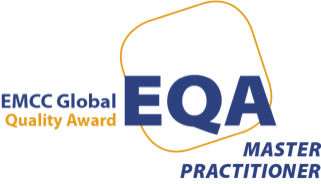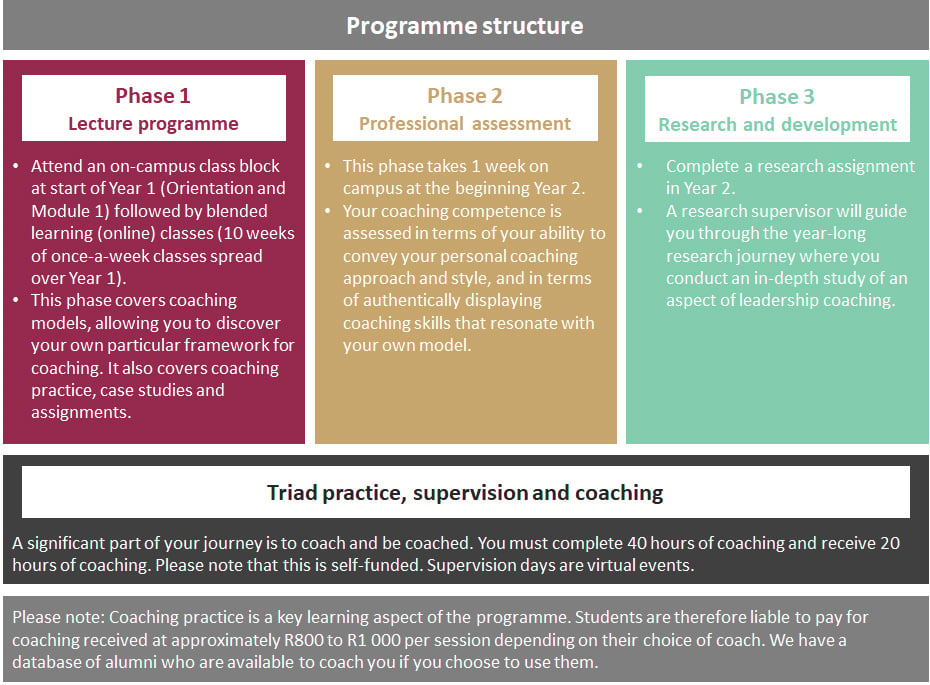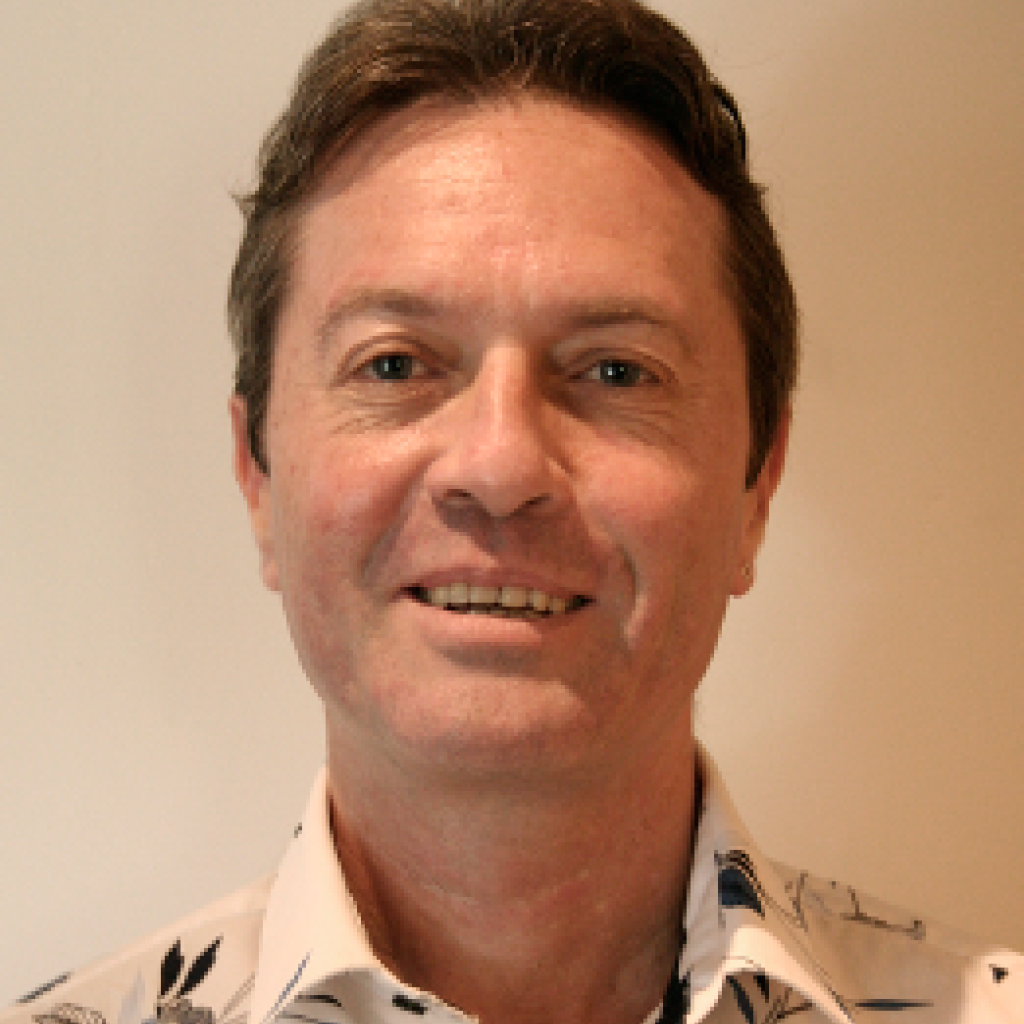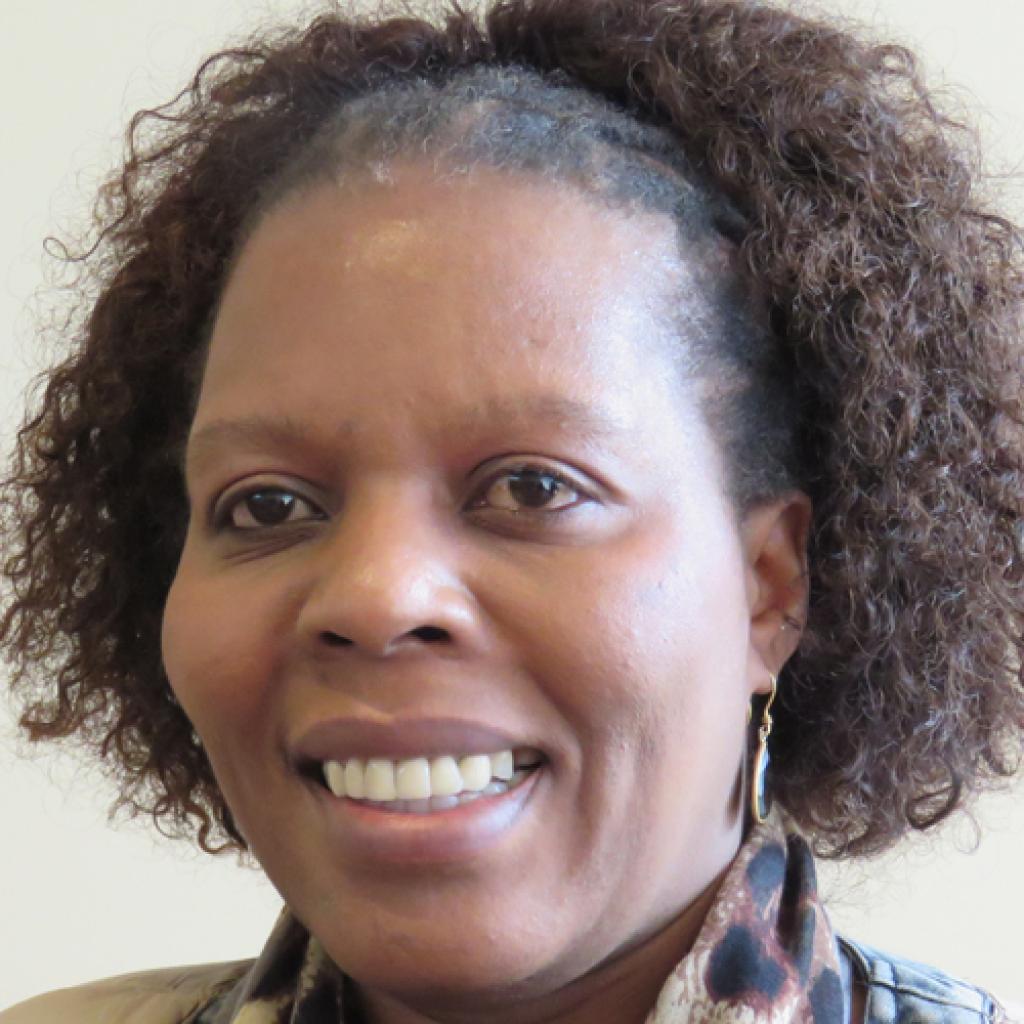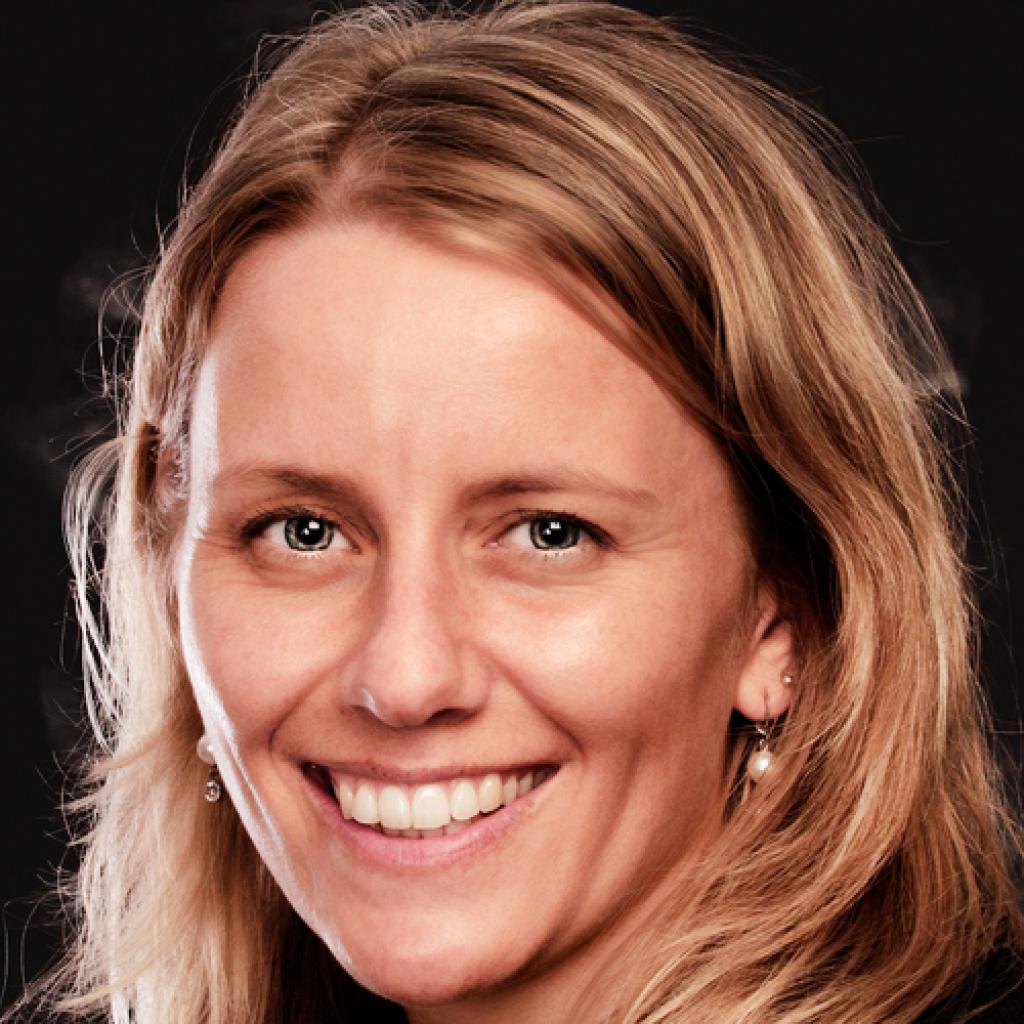Use this professional qualification to establish your credentials as a coach
This internationally accredited MPhil Leadership Coaching provides you with the skills to establish your credentials as a leadership coach. This will enable you to grow the talent of others, transfer knowledge, build meaningful relationships, enhance the performance of others, strengthen teamwork, and facilitate cultural transformation in organisations.
But first, it will ask you to dig deeply in order to find out what drives you as a coach and then to develop your authentic coaching style.
Study while you work
This is a blended learning programme, which means you can study while you work. This format combines on-campus classes with online classes, making the programme accessible to students from elsewhere in South Africa and even further afield. This also means that you can start to generate an income from coaching almost immediately.
Quality guarantees
This MPhil Leadership Coaching comes with various quality guarantees. The degree is accredited with EMCC’s Global Quality Award (EQA) at Master Practitioner Level. The Belgium-based EMCC sets industry standards for mentoring, coaching, and supervision globally.
The degree is also internationally accredited by EQUIS as well as by the South African Qualifications Authority (SAQA). Coaches and Mentors of South Africa (Comensa) has approved the programme as a Comensa Gold Training Provider Programme in line with Comensa’s code of ethics and conduct, and behavioural standards for coaching.
A transformative learning experience awaits you – particularly if you see your future self as a coach, consultant, manager or corporate leader.
Master's
MPhil Leadership Coaching
Blended
Dates for 2024
- Block 1: 6 - 8 February (Orientation) - (On campus); 10 – 14 February (On campus)
- Block 2: 23 April - 21 May (Remote - Wednesday’s from 13:00-18:00)
- Block 3: 21 - 25 July (On campus)
- Block 4: 1 - 29 October (Remote - Wednesday’s from 13:00-18:00
- Professional Assessment: 19 - 23 January 2026 (campus)
The Business School reserves the right to change programme dates and fees.
2024 Supervision dates (remote)
- 12 March
- 4 June
- 20 August
- 12 November
- 7 January 2026
Course Structure and Content
Your journey to become a leadership coach
The learning philosophy of the MPhil Leadership Coaching is based on the integration of theory and practice, finding your authentic coaching style, international application with local specialisation, practical experience and extensive support. The programme has a strong ethical and responsibility underpinning, which will enable you to become a values-driven leader through coaching.
You will learn from knowledgeable presenters, and capitalise on the thought leadership of local experts who were pioneers in the field of management coaching in this country. Today, most of these presenters play leading roles in the continued development of coaches worldwide. In addition, only a small number of people worldwide have doctoral degrees in coaching. A number of them facilitate and assess on this degree.
You will also benefit from comprehensive support throughout the programme. The degree emphasises the relevance of work-based coaching competence.
- Convenient format: Combination of 3 on-campus blocks (2 blocks in Year 1 and 1 block at the start of Year 2), and blended learning classes (10 weeks of once-a-week classes in Year 1, i.e., remote classes on Wednesdays from 13:00 to 18:00). Year 2 is mostly taken up by the Research Module, which consists of live-streamed lectures and assignments culminating in a research assignment. This allows you to study while you work with minimum time away from work.
- Approach to learning: The programme uses theory, practice and reflection to ensure integrated learning. The programme also offers a unique blend of adult learning approaches to hone your coaching talents through work-based learning and evidence-based practice. Knowledge is transferred through classroom lectures, coaching practice, self-reading, challenging assignments, supervision and research. We use world-class facilitators and offer various forms of support to ensure continuous professional development throughout the programme. You will also learn from the knowledge, experience, personal traits and energy that your co-learners bring to the table.
- Time commitment: This programme would require of you to set aside at least two hours per day for preparation, reading and assignments. Most of our alumni worked while doing this programme. However, it does require commitment.
- Orientation block, Module 1 (Fundamentals of Coaching) and Module 3 (Leadership Coaching): Year 1 starts with the orientation block followed directly by Module 1. This means one in-person, on-campus engagement from the Thursday to the next Friday (7 days of training). Module 3 is also presented in person and on campus, and it spans 5 consecutive days.
- Module 2 (Business Coaching) and Module 4 (Team and Advanced Coaching): These modules are delivered in blended learning format (live-streaming, no in-class attendance) in a staggered format of one lecture every Wednesday (13:00 to 18:00) for five weeks per module for a total of 10 weeks of once-a-week classes during Year 1. Shorter virtual sessions will also be scheduled as and when needed for briefings and check-ins.
- Module 5 (Professional Assessment): This module is delivered on campus at the start of Year 2. It runs from the Monday to the Friday.
- Module 6 (Research): The Research Module is presented in Year 2 as a series of live-streamed lectures and assignments culminating in a research assignment.
- Leaders, managers, human capital development experts and learning facilitators in all industries
- Experienced practicing coaches who want to solidify their theoretical base and earn a respected qualification to take their coaching to the next level
- Those who support and facilitate growth, performance, relationship-building and teamwork
- Those working with the human aspects of transferring knowledge, talent development and organisational effectiveness
- Those who want to help bring about a more ethical and responsible society, since the effects of professional coaching are both transformative and sustainable
- Those aspiring to senior management positions
- Those who want to prepare for a career change
Modules
The modules (class programme) will be delivered through lectures, tutorials, case studies, assignments, practical work and independent research. The class programme covers the following:
- Orientation: During this module, you will be introduced to the orientation, flow and rigour of the programme. The various learning elements will be introduced with a focus on what is expected for successful completion. Students also set up coaching triads (for purposes of practising their newly learnt coaching skills during the year, organised by themselves) and get their first assignment for the year, a book review.
- Module 1 – Fundamentals of Coaching: Orientation to Coaching; Learning Theory and Learning Styles; Adult Learning and Self-organised Learning; Psychological Underpinnings of Coaching; Ethics in Coaching; Continuous Professional Development (The Art of Reflection); Integral Coaching Model; Skills Practice and Supervision.
- Module 2 – Business Coaching: Coaching Frameworks; The Business Coaching Process; Coaching for Performance; Experiential Models of Coaching; Continuous Professional Development, Assignment, Case Studies, Skills Practice and Supervision.
- Module 3 – Leadership Coaching: Coaching for Organisational Alignment; Leadership and Transformation; An Integral Approach to Coaching Existentially in a World Characterised by Multiculturalism; Reflective practice; Assignment, Skills Practice and Supervision.
- Module 4 – Team and Advanced Coaching: Team Coaching; Ubuntu Coaching (African perspective on coaching); Personal Construct Psychology Coaching; An Experiential Approach to Coaching; Skills Practice.
- Module 5 – Professional Assessment: Professional Assessment of the Student’s Learning Journey; Practical Assessment of Coaching Model and Framework; Practical Assessment of Coaching Ability through a Panel Demonstration.
- Module 6 – Research: The Research Module consists of a series of lectures and assignments during the second year, leading up to a final research report. Students are supported by a research supervisor during this time.
Stellenbosch Business School provides additional access to its programmes through its Recognition of Prior Learning (RPL) process, as recommended by the Council on Higher Education (CHE). The purpose of the Council on Higher Education’s policy on Recognition of Prior Learning is to develop and facilitate the implementation of RPL across the higher education sector and to base this on the principles of equity, access, inclusivity and redress of past unfair discrimination with regard to educational opportunities.
In line with the requirements of the Council on Higher Education, the Business School may admit up to 10% of its student body per programme under RPL.
Applicants who wish to be admitted under the RPL policy need to submit all the documentation as required for all prospective students. In addition, prospective RPL candidates applying for a PGDip with us need to adhere to the following:
- Have at least an NQF 6 qualification.
- Have at least 8 years of working experience in the field of human capital development.
- Submit a comprehensive CV, indicating detailed areas of responsibility as well as information of activities outside the work environment.
- Write an assignment of at least 10 pages (font size 11 and 1,5 spacing) with references about a coaching topic provided by the programme head of the MPhil Leadership Coaching.
- Provide the Business School with the names and contact details of at least two persons who can testify about the candidate’s managerial or related professional abilities (typically current or former line heads). These persons will be required to give a detailed personal reference about the candidate on forms provided by Stellenbosch Business School.
- Conduct an in-depth interview with the Head of the PGDip programme and one other academic staff member from Stellenbosch Business School.
The RPL selection process entails the following:
- The programme head and one other academic staff member will conduct an in-depth interview with the candidate and make a recommendation about admission.
- The Admissions Committee will consider the full application including the interview recommendation and the inputs received from the references for admission.
- A notice of admission is sent via the Business School’s Academic Planning Committee to the Board of the Faculty of Economic and Management Sciences at Stellenbosch University.
- RPL candidates need to apply by 31 October of each year to allow sufficient time for the assessment process.
- Note that the learning acknowledged in terms of RPL cannot also be used to grant exemption of credits within the same programme.
This programme is about finding out what drives you as a coach and developing your own coaching style. In the end, it will give you the credentials to empower others through coaching.
Programme Fees
Application fee for 2024
Tuition fees for 2024
Important:
- Payment of full programme fees for South African students: Students can pay the full programme fees upon registration, or they can pay 80% of the annual fees by the end of May and the balance of 20% by the end of September.
Payment schedule (calculated on outstanding fee after deposit payment):
28 February - 31 May - 20% x 4 months (80%)
30 June - 20 September - 5% x 4 months (20%) - Payment of full programme fees for international students: International admitted students pay 50% of the annual fee as deposit. The remainder is due one month before commencement of the programme. The South African exchange rate favours international students.
- Deposit: All students pay a deposit on acceptance of admission. South African students must pay a set deposit on admittance. International admitted students pay 50% of the annual fee as deposit. The deposit payable is non-refundable and will be deducted from the total programme fees.
- Application fee: The application fee must accompany the application. The application fee is non-refundable.
- Additional fees for international students: International students pay an International Registration Fee (IRF) per academic year. Students from countries other than those in the Southern African Development Community also pay an International Tuition Fee (ITF) (i.e. students from SADC countries are exempt from the ITF).
- Additional fees for coaching received: Students need to pay for coaching received at approximately R800 to R1 000 per session depending on their choice of coach.
- Fees for 2026: The fees for the second year of enrolment will be adjusted to make provision for annual price increases.
- Study materials: Some core textbooks and other study material will be provided to students and the cost thereof is included in the tuition fees. These books become the property of the student.
- Travel and accommodation: Students are responsible for their own travel and accommodation arrangements and costs.
- Programme sustainability: The Business School reserves the right not to present a programme or programme stream if the enrolment numbers are not sufficient to make the programme sustainable.
- Fee changes: Stellenbosch Business School reserves the right to change the fees at any time.
Please use your Student Number as Reference | Email proof of payment to [email protected] | Quote your student number in all correspondence.
Admission Requirements
Academic qualifications and other admission criteria
- Academic qualifications: An honours degree, OR a 4-year professional bachelor’s degree, OR a 3-year bachelor’s degree and a postgraduate diploma. Your previous academic qualifications should be at least on NQF Level 8.
- Work experience: At least 4 years of work experience in the field of people management.
- Psychometric testing: This may also be required.
- Two essays: See details elsewhere on page.
Write two essays
As part of your application pack, you need to submit two essays:
- A motivational essay about your journey with coaching
- A coaching research essay about coaching approaches
See details below
What if you don’t have the academic qualifications to apply?
You can still apply based on your management experience. You need to submit all the documentation and assessments as required for all prospective students, plus additional requirements as explained under Recognition of Prior Learning elsewhere on this page.
Write a motivational essay
Write a reflective and comprehensive essay on the following:
- How does your learning journey to date reflect your personal growth towards becoming a coach?
- How does this awareness motivate you to do the MPhil Leadership Coaching?
- How do you intend to cope with the high volume of learning hours, reading and coaching which you will be required to manage?
- What do you expect to gain from this learning journey?
- Why should you be admitted to this programme?
Write a coaching research essay
Do some searching on Google and write an essay describing and comparing any two of the following coaching approaches: solution-focused coaching, cognitive behavioural coaching, and narrative coaching. Which one do you like best and why? The essay must be around 500 words. Please include references.
Before you start
- About the online application process: The online application form consists of various sections. To progress from the one section to the next, all the information in the current section must be completed and accepted by the information management system. You will be able to complete the form in steps without losing information (i.e. you do not have to complete the application form in one sitting). The application process is the same for South African and international students. It is best to use Google Chrome as web browser when completing your application.
- Determine the NQF levels of your previous qualifications: To find out whether you qualify for this programme, please check the NQF levels of your previous qualifications with the academic institution(s) where you have studied, or contact [email protected].
- Assessment of international students’ applications: International students require a South African Qualifications Authority (SAQA) evaluation certificate to evaluate their degrees according to South African standards. The Business School’s International Affairs Office will first handle the credential evaluations of international students free of charge. For this to happen, you need to complete the online application and upload all certificates with your application. The International Affairs Office will then, as part of the application process, conduct an in-house credential evaluation after you have submitted your application. However, should the International Affairs Office be unsure about the status, recognition or accreditation of your qualification, we reserve the right to refer you to SAQA before we consider your application further.
- Checking the status of your application: You can go back to your application and check the status of your application.
- Vetting process: All degrees undergo a formal vetting process to eliminate fraudulent applications.
The application process
Click on the APPLY NOW button and complete the online application form by completing each of the required sections. You also need to upload the following supporting documentation:
- Completed and signed application forms
- Detailed CV
- Motivational essay
- Coaching research essay
- Certified copies of degree certificates (which must include a transcript of the subjects)
- A copy of your ID (or passport for non-South African students)
- A marriage certificate (where the applicant’s new surname does not match that on the degree certificates)
- Consent form to verify your qualifications (please download, complete and upload the form in order for Managed Integrity Evaluation (Pty) Ltd to verify your qualification documents)
Payment of your application fee can be done online:
Bank details: Bank: Standard Bank; Type of account: cheque account; Account name: US Business School; Account number: 073003069; Branch name: Stellenbosch; Branch code: 050610; Beneficiary name: Stellenbosch University; SWIFT code: SBZAZAJJ.
Enquiries about payments: Please send an e-mail to [email protected].
What happens next?
Your application can only be assessed by the selection panel if it is accompanied by your completed online application form and all the supporting documents, and if you have paid the application fee. The outcome of the selection process will be made known within 30 days or as soon as possible thereafter. If you are uncertain whether your application is complete and is being processed, contact [email protected] for assistance.
Deadlines for MPhil Leadership Coaching applications:
- Applicants from South Africa, SADC countries and rest of world: 15 November 2024
- Recognition of Prior Learning applicants: 31 October 2024
Also note the following:
- Deadlines for RPL applicants: Note that application deadlines for Recognition of Prior Learning (RPL) applicants are earlier than those for South African students.
- Study permits for international students: Obtaining a study permit (study visa) from the South African authorities can take up to 12 weeks from the date of being offered a place on a programme at the Business School. An early start with the application process is therefore recommended.
- Multiple-entry visas: Students from non-SADC African countries and other countries with visa requirements who need to apply for study visas can obtain a letter from Stellenbosch Business School confirming the duration of registration at the Business School. This will help students to obtain multiple-entry study visas in case of modular studies.
Study visa requirements for international students
All residential students who are non-South African citizens and are studying at Stellenbosch Business School require a study visa. Prospective students should contact their nearest South African Mission (South African Embassy, Consulate or High Commission), normally in their country of origin, to enquire about the requirements for study visas for South Africa. Applicants are required to present themselves in person so that biometric data may be captured. All international students can contact the Business School’s International Affairs Office at [email protected] for assistance. All international students must hold a valid visa for their intended activity prior to entering South Africa.
Notes on obtaining a study visa
- Obtaining a study visa from the South African authorities takes approximately 12 to 16 weeks from the date of application. However, some missions may process applications sooner. Sufficient time should be allowed for study visa applications to be processed.
- Your study visa application should include a copy of the letter offering a place on the Business School’s study programme. This letter will be provided by our Centre for Academic Administration once the application has been approved. A place on the programme must be confirmed before a study visa application can be considered by the South African Department of Home Affairs. Students should not proceed to Stellenbosch University or its Business School without a valid study visa.
- Although applicants are expected to determine exactly what they require to apply for a study visa, they can be expected to provide the following, among others: a police clearance certificate, proof of medical insurance recognised in South Africa, a radiology report, proof of sufficient funds, and an admission letter from Stellenbosch Business School. Your nearest South African Mission will be able to advise in this regard. The onus falls on the student to make sure that he/she submits a complete application pack.
- All documents should be certified and translated into English before submission (in order not to delay the outcome of the application).
Contact Us
Please contact us if you need more information on this programme or the application process:
Programme enquiries and support with the applications process
Client Liaison Officer
Telephone : +27 (0) 21 918 4246
Email: [email protected]
Admission and registration enquiries
Joanne Sleigh
Telephone: +27 (0) 21 918 4239
Email: [email protected]
Related Events
Stellenbosch Business School | Virtual Open Week 2023
Kampala, Uganda Information Session
Kigali, Rwanda Information Session
Frequently Asked Questions
All those who manage people or who work in the field of human capital development or talent development will benefit from this degree. This includes leaders, managers, learning facilitators, practicing coaches, HR practitioners and learning facilitators. The experience of our students and alumni is that the course is suited to any career that involves managing people.
This programme is presented in Blended Learning format, which combines on-campus classes with online classes (using any internet-linked laptop). In the online classes, students can actively participate in classroom discussions. The lecturers can talk directly to each student, whether they are logging in from an airport in Europe, a boardroom in Africa or an office at home. This combination of on-campus blocks of classes and weekly online classes allows you to study while you work and to start earning an income from coaching almost immediately. This format also lowers the opportunity cost to do this programme as it reduces travel and accommodation costs.
Yes, you can use this postgraduate qualification to find your authentic coaching style, to establish your credentials in management coaching, and to set up your own coaching practice. This programme contains modules such as Business Coaching, Leadership Coaching and Team Coaching – all aimed at providing you with the skills to offer professional coaching services to individuals, teams, and corporates.
Related Programmes
Related Articles


